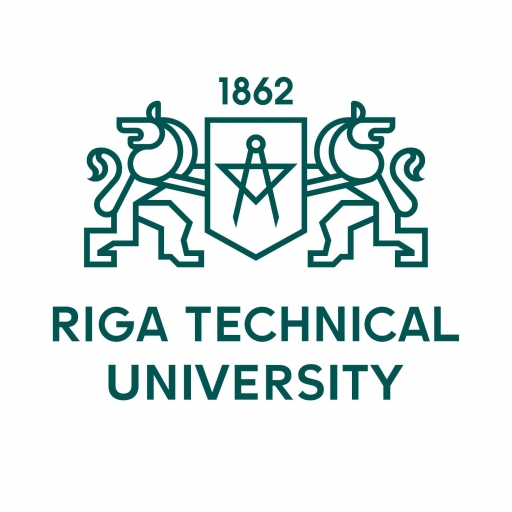Photos of university / #rtu.lv
The Bachelor's Degree Programme in Civil Engineering at Riga Technical University is a comprehensive and challenging educational path designed to prepare students for a successful career in the construction and infrastructure sectors. This programme provides students with a solid foundation in core engineering principles, combining theoretical knowledge with practical skills essential for designing, planning, constructing, and maintaining various civil engineering projects. Throughout the course of study, students are introduced to key areas such as structural engineering, geotechnical engineering, transportation engineering, water resources management, environmental engineering, and construction management. The curriculum emphasizes the development of problem-solving abilities, analytical thinking, and innovative approaches to addressing real-world engineering challenges.
Students will benefit from modern laboratories, workshops, and computer-aided design (CAD) facilities that facilitate hands-on learning and practical application of theoretical concepts. The programme also incorporates internships and collaborative projects with industry partners, enabling students to gain valuable work experience and insights into the current practices and trends within the civil engineering field. Emphasis is placed on sustainable development, environmentally friendly construction practices, and the application of innovative technologies to ensure that future engineers are equipped to contribute responsibly to society and the environment.
The programme is delivered by experienced academic staff who are actively involved in research and industry projects, ensuring that the curriculum remains relevant and aligned with current technological advancements. Graduates of this programme will gain the knowledge and skills necessary to design safe, durable, and sustainable civil engineering structures, participate in the planning and execution of construction projects, and pursue further specialization or postgraduate studies. The Bachelor’s Degree in Civil Engineering from Riga Technical University offers an excellent opportunity for students aiming to become competent professional engineers ready to meet the demands of the dynamic construction industry.
The Civil Engineering program at Riga Technical University offers a comprehensive education designed to prepare students for a successful career in the construction and infrastructure sectors. Throughout the program, students acquire a solid foundation in the principles of engineering, mathematics, physics, and materials science, which are essential for designing, analyzing, and managing various civil engineering projects.
The curriculum covers a broad spectrum of topics, including structural engineering, geotechnical engineering, transportation engineering, hydraulics, environmental engineering, and construction management. Students gain practical skills through laboratory work, computer-aided design (CAD) training, and numerous project assignments that simulate real-world engineering challenges. Emphasis is placed on sustainable development and environmentally friendly solutions, preparing graduates to address the evolving demands of modern infrastructure development.
In addition to technical expertise, the program fosters critical thinking, problem-solving abilities, and effective communication skills. Students have opportunities to participate in internships, collaborative projects with industry partners, and research activities, enhancing their practical knowledge and professional network. The program also encourages innovation, entrepreneurship, and lifelong learning to adapt to technological advancements and industry trends.
The Civil Engineering program at Riga Technical University adheres to international standards and aims to produce qualified professionals capable of working in Latvia, the Baltic region, and globally. Graduates are prepared for careers in designing, constructing, supervising, and maintaining buildings, bridges, roads, water supply systems, and other civil infrastructure. Upon completion, students receive a Bachelor’s or Master’s degree in Civil Engineering, qualifying them for professional accreditation and diverse employment opportunities in the engineering and construction sectors.
Program requirements for the Civil Engineering undergraduate degree at Riga Technical University include a combination of educational prerequisites, language proficiency, and specific entrance criteria. Prospective students must have completed secondary education with a focus on mathematics and physics, demonstrating strong analytical and technical skills essential for the field of civil engineering. Applicants are typically required to provide proof of secondary school graduation, along with transcripts that highlight their performance in relevant subjects. Additionally, proficiency in English is necessary, as the program is offered in English; therefore, applicants must submit results from recognized language proficiency tests such as IELTS or TOEFL, or demonstrate equivalent competency through other accredited assessments. For international students, specific visa and residency requirements may also apply, including health insurance coverage and compliance with the university's admission process.
Furthermore, candidates may need to undergo an entrance interview or assessment to evaluate their motivation and suitability for the program. Certain academic prerequisites, such as completion of physics and mathematics courses at the secondary education level, are strongly recommended to ensure students are prepared for the curriculum’s technical complexity. Applicants should also demonstrate interest or experience in engineering, construction, or related fields, which can be evidenced through extracurricular activities, internships, or related coursework. The admission process may include the submission of a motivation letter and recommendation letters from teachers or mentors familiar with the applicant’s capabilities.
Riga Technical University also values diversity and encourages applications from students with varying educational backgrounds, provided they meet the minimum criteria. For those who do not meet specific prerequisites, preparatory courses or bridging programs might be available to bridge gaps in knowledge. Additionally, certain fees and documentation requirements, such as a passport copy, application form, and passport-sized photographs, are mandatory components of the application package. Overall, the program aims to select motivated and qualified students able to undertake a rigorous curriculum that prepares them for a professional career in civil engineering, contributing to Latvia’s infrastructure development and global engineering projects.
The financing of the Civil Engineering degree programme at Riga Technical University is primarily supported through a combination of state funding, student tuition fees, and additional financial assistance options. The university offers a range of funding opportunities aimed at making education accessible to both domestic and international students. State-funded places are available for students meeting specific criteria, such as achievement levels and admission scores, which cover a significant portion of the tuition costs for eligible students. These grants are awarded through national scholarship programmes and are often based on academic performance, socio-economic background, or other merit-based factors.
For students who do not secure state funding, the programme’s tuition fees are payable annually and are competitive compared to similar programmes in the region. Riga Technical University offers flexible payment plans to ease the financial burden, including options for installment payments. International students are usually required to pay higher tuition fees, which are critical for maintaining the quality of education and facilities. Additionally, the university provides information on external scholarships, grants, and sponsorship opportunities that students can apply for during their studies.
The university also encourages students to seek part-time employment opportunities, locally or remotely, to supplement their income during their studies. Riga Technical University collaborates with industry partners to provide internships and cooperative education placements, which sometimes include financial stipends or allowances. Moreover, Riga Technical University participates in various European Union-funded projects and educational mobility programs such as Erasmus+, enabling students to receive funding for study exchanges, further reducing the financial barriers associated with international education.
Financial support is also accessible through student loan programmes, which allow students to manage tuition and living expenses more effectively over the course of their studies. These loans are offered under national or private financial institutions and are designed to be repayable after graduation once students secure employment. Overall, the financing structure of the Civil Engineering programme at Riga Technical University aims to promote equitable access to technical education through a diverse range of funding options, ensuring that talented students from various backgrounds can pursue their engineering ambitions without undue financial hardship.
Civil Engineering at Riga Technical University offers a comprehensive education in designing, constructing, and maintaining infrastructure projects essential for modern society. The programme is designed to equip students with the theoretical knowledge and practical skills necessary to address complex engineering challenges in areas such as construction, transportation, environmental protection, and urban planning. Throughout the course, students gain a solid foundation in mathematics, physics, materials science, and computer-aided design, enabling them to analyze and solve complex structural and infrastructural problems.
The curriculum includes core modules in structural engineering, geotechnics, hydraulics, transportation systems, construction management, and environmental engineering. Emphasis is placed on sustainable development and innovative construction technologies, preparing graduates to contribute to eco-friendly and resource-efficient infrastructure solutions. Students benefit from state-of-the-art laboratories, workshops, and on-site training opportunities, collaborating with industry partners to gain real-world experience.
The programme prepares graduates for employment in various sectors, including construction companies, civil engineering consultancy firms, transportation agencies, and governmental organizations responsible for infrastructure development and maintenance. Additionally, the programme supports career progression towards advanced roles in project management, research, and academia. Riga Technical University’s strong ties with industry and emphasis on practical training ensure that graduates are well-equipped to meet the demands of the ever-evolving civil engineering field.
Riga Technical University also encourages participation in international exchanges and research projects, fostering global perspectives and innovative approaches within the field. With a focus on professional ethics, safety standards, and environmental responsibility, the Civil Engineering programme aims to develop well-rounded engineers capable of making impactful contributions to community development and sustainable growth. The typical duration of the programme is four years, culminating in a Bachelor’s degree, with options to pursue Master's or doctoral studies for further specialization.










